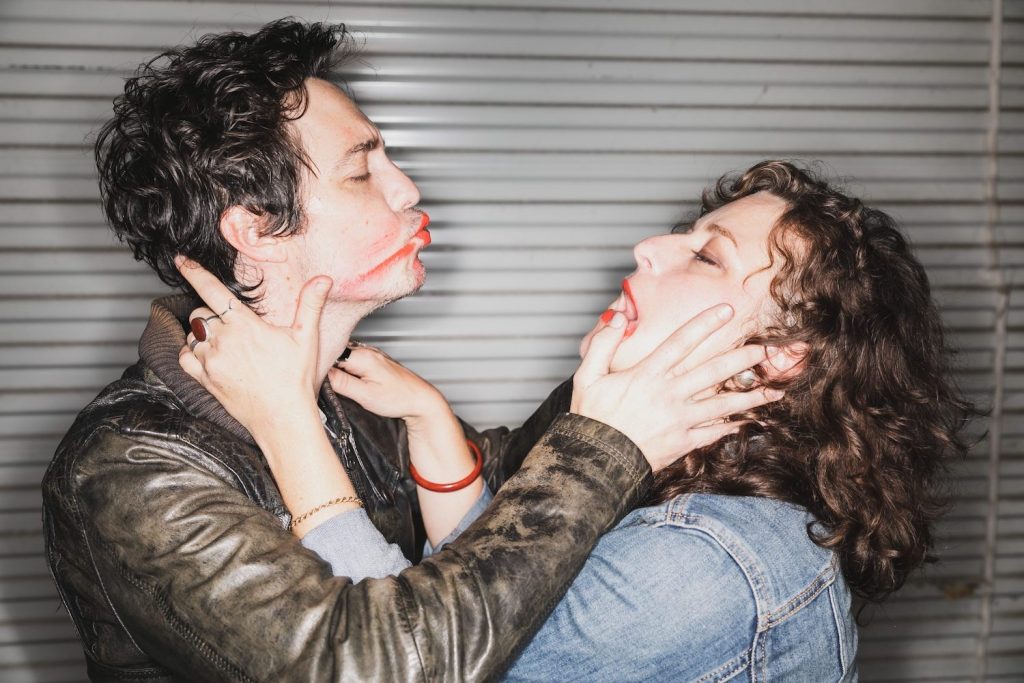
It’s certain Shovels & Rope’s Manticore (Dualtone) would’ve been a much different album had the pandemic never happened. Fleshed out on guitar and piano in a New Orleans home owned by the Preservation Hall Jazz Band, its 10 songs were intended to be spare and intimate. Thanks to the generosity of a friend, Michael Trent and Cary Ann Hearst decamped there while their beloved property on Johns Island, S.C., underwent renovations. They even hung around for the last Mardi Gras celebration before COVID turned the world inside out.
Back home, with nothing to do but sit and wait, Trent and Hearst got busy in their home studio, beefing up the sonic impact and complexity of the music on Manticore to match the topical weight and emotional volatility of its themes, which veer from marital sparring, career burnout and the rigors of parenthood to social upheaval, cultural bankruptcy and other societal ills. Trent and Hearst have noted that it’s the closest to heavy metal the duo is likely to get—literally and figuratively. More on that below.
The last time I saw you guys onstage was at this past summer’s XPoNential Festival, headlining the main stage and watching you deal with numerous sound issues. You handled it well.
Hearst: Oh yeah, that was a doozy.
Trent: Basically, all our equipment melted. We were trying not let it overwhelm us, but there’s only two of us—and you get to a point where you can’t make any more noises.
Hearst: But at the end of the day, it’s entertainment. Your job is to make people feel good, and the opposite of making people feel good is a pair of egos melting down because their guitars didn’t work right and it didn’t go their way. In one way, it was humiliating. But in another, it was a show in itself.
Manticore doesn’t really sound like heavy metal, but you’ve described it that way. Why?
Hearst: It’s full of very big feelings and big truths. We’re telling our story, and we’re telling other people’s stories that are heavy and don’t always end well. It’s this weird blend of fiction and autobiography. We’re six records in, and we’re middle-aged parents. We’ve gained some wisdom—and that shit is dark and it’s heavy.

The original concept for the album was more stripped down, correct?
Trent: We’d imagined a sparser album. It didn’t seem like there was a lot of need for rock ’n’ roll arrangements. The songs were lending themselves to a little bit less production. But then we did it anyway, I guess. We came back to our studio, and we had a lot of time to be patient, try different arrangements and add instruments.
Are there any songs were completely transformed after you left New Orleans?
Trent: “Domino” and “Collateral Damage” were quite different. “Domino” sounded like something off Nebraska—and then we just ended up having some fun with the production.
Hearst: It’s good to know that the tracks stand up on their own as acoustic songs. I’m always self-conscious about sending strictly acoustic versions of things into the world anyway.
So would Manticore be the easiest Shovels & Rope album to play live in an “unplugged” setting?
Trent: There may be something to that. This past fall, we did a tour with just piano and acoustic guitar. We played some of the material off Manticore, and it was nice. I do have to give our fanbase a lot of credit for going with it. Our live show is never exactly what’s on the record, but this was more precise.
How was your stay in New Orleans?
Hearst: We were fortunate to have that time to really put the songs together. The part of our process where we meet artist to artist doesn’t happen very often, so it was amazing to have this completely unique setting, as opposed to the more mechanical way we do it as stay-at-home parents. By the time we got to New Orleans with these songs, we were already a mess—we were tired and devastated by the perpetual touring and all the responsibilities we had. Then COVID happened, and we had to confront all this shit at home.
Trent: We hadn’t stayed home like that since we started doing this thing 10 years ago. It was nice to just reconnect with our house.
And you’ve got young kids, so that’s two years of quality time.
Trent: When it started, they were one and four—now they’re three and six. We’re grateful we could stay put with them. The other silver lining was that we could take our time with the album. Usually, it’s two weeks at home, and then we’d have to get back on the road. It was good for our mental health—even as our mental health was going out the window because of the pandemic.
—Hobart Rowland







